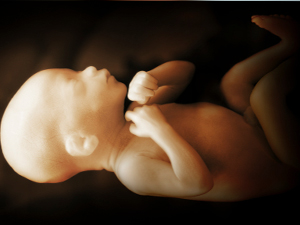 U.N. experts backtracked last week after taking heat for accusing the Pope of torture because of Church teaching on abortion.
U.N. experts backtracked last week after taking heat for accusing the Pope of torture because of Church teaching on abortion.
“It seems like we are being cross-examined!” exclaimed humorously the chair of the Committee, U.S. based law professor Claudio Grossman at the sight of swarms of reporters at a press briefing in Geneva on Friday last week. The committee doesn’t usually get media attention.
The experts repeatedly said they did not “prioritize countries” at the briefing dedicated exclusively to the Vatican. The committee looked at seven other state parties to the convention against torture during the same session, including Thailand, where a military coup took place last week and dozens of opposition figures are being detained.
The Vatican corrected the committee after experts accused the Pope of torture because of Church teaching on abortion at a meeting last month.
“Abortion is torture,” the Vatican told the experts and accused them of overstepping their mandate, violating religious freedom, and even of bad faith. The mainstream media did not report on this. Free speech advocates also condemned the committee after it said that political activity against abortion by the Church could be seen as torture. The media also ignored this.
Grossman in particular, and Felice Gaer, an American on the committee, were under scrutiny because of their outspoken advocacy for abortion rights. Neither recused themselves from the session. The media once again reported selectively. But at least the criticism appeared to have some effect.
The written observations of the committee issued Friday do not mention abortion, contrary to expectations raised by the committee’s conduct earlier in the month. Instead, the committee concentrated on making the case that the Vatican is responsible of torturing victims of clergy sex abuse.
On that score, the experts have been accused of acting in bad faith and using the U.N. human rights framework to settle a political score, something else that egregiously went amiss in the mainstream media even though the accusation came from Vatican spokesperson Federico Lombardi, and was bolstered by the written observations of the committee.
The experts ignored the answers of the Vatican to concerns raised at the meeting earlier this month. The written observations repeat the same concerns again as if the Holy See had not provided any response. This casts the Holy See in a bad light.
For example the committee mentions a case where the Holy See denied Australia’s request for certain documents as if this was done in bad faith, when the committee had been told the documents would be released as long as the proper diplomatic channels were used.
The committee accuses the Vatican of refusing the extradition of one Vatican diplomat accused of abusing minors when it knows that the Vatican is conducting its own criminal investigation into the matter, and that any extradition could only take place after that investigation is concluded.
Similarly, the committee expressed concern that clergy sex abuse cases had not been referred to the authorities, while knowing full well that Vatican policy instructs dioceses to refer such cases to civil authorities as country laws may require, and that the Vatican cannot control what happens in individual dioceses with regards to compliance with this policy.
The Holy See will respond to the committee against torture with its own observations on the committee’s observations sometime later this year.



